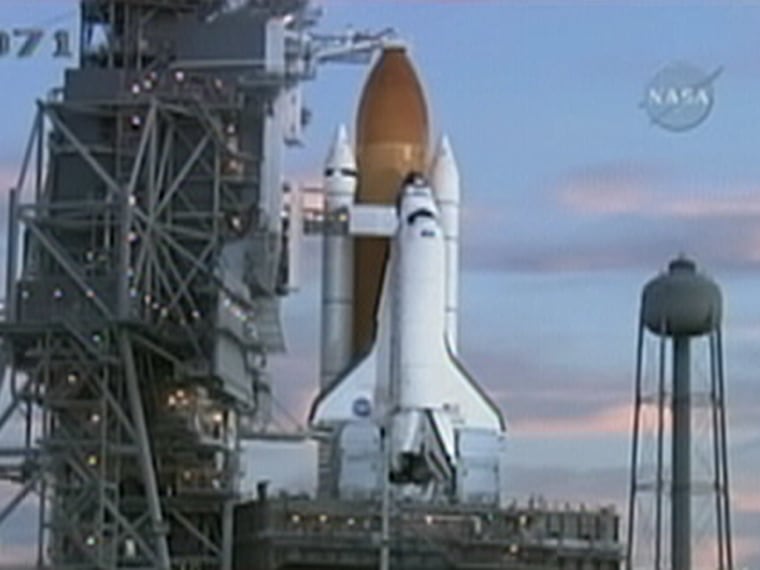Another week has been added to the postponement of the space shuttle Atlantis' launch to the international space station, in order to give NASA's work force more of a break during the holidays, the space agency announced Thursday.
Two countdowns have been aborted in the past week due to a nagging fuel-gauge glitch, and NASA had been hoping to fix the problem in time for a third launch attempt on Jan. 2. The new schedule calls for Atlantis to lift off from Kennedy Space Center in Florida no earlier than Jan. 10, NASA said.
Launch pad workers are currently preparing for a fuel-tank test next week that should help pinpoint the source of the glitch. Depending on the outcome of that test, Atlantis may be quickly cleared for a liftoff on Jan. 10, or additional diagnostic and repair efforts may be required.
"The work force has stepped up to and met every challenge this year," shuttle program manager Wayne Hale said in Thursday's announcement. "Moving the next launch attempt of Atlantis to Jan. 10 will allow as many people as possible to have time with family and friends at the time of year when it means the most. A lot has been asked of them this year, and a lot will be asked of them in 2008."
Between now and the next countdown, NASA's engineers and mission managers will have to resolve the problem with the fuel-gauge system. Under the flight rules that governed the last launch attempt, all four low-level fuel sensors for the liquid-hydrogen tank must be functioning. Two failed when the tank was filled for the Dec. 6 launch attempt, and one failed on Dec. 9.
The fuel sensors would provide a warning when the tank was nearly empty, potentially avoiding a catastrophe during the shuttle's ascent. The system has never been needed in flight so far, but during a news briefing this week, Hale compared it to the seat belts in an automobile: "If you needed it and it didn't work, it would be very bad."
During Tuesday's test, the hydrogen tank will be filled at the launch pad while technicians use a diagnostic tool called a time-domain reflectometer to monitor the fuel-sensor system's wiring. The reflectometer should indicate precisely where the flaw in the system is located, guiding the repair effort.
The main objective of Atlantis' 11-day mission is to install and activate the European Space Agency's Columbus laboratory, which will provide scientists around the world the ability to conduct a variety of science experiments.
There are no firm technical constraints that would limit the window for Atlantis' launch in January — but the schedule for future shuttle missions is already tight, with the next launch currently set for Feb. 14. NASA would like to stick as close to the current schedule as possible, aiming toward the completion of space station assembly and the retirement of the shuttle fleet in 2010.
